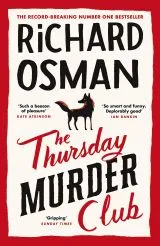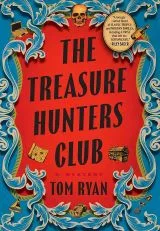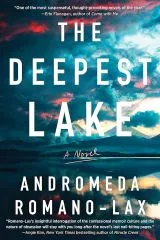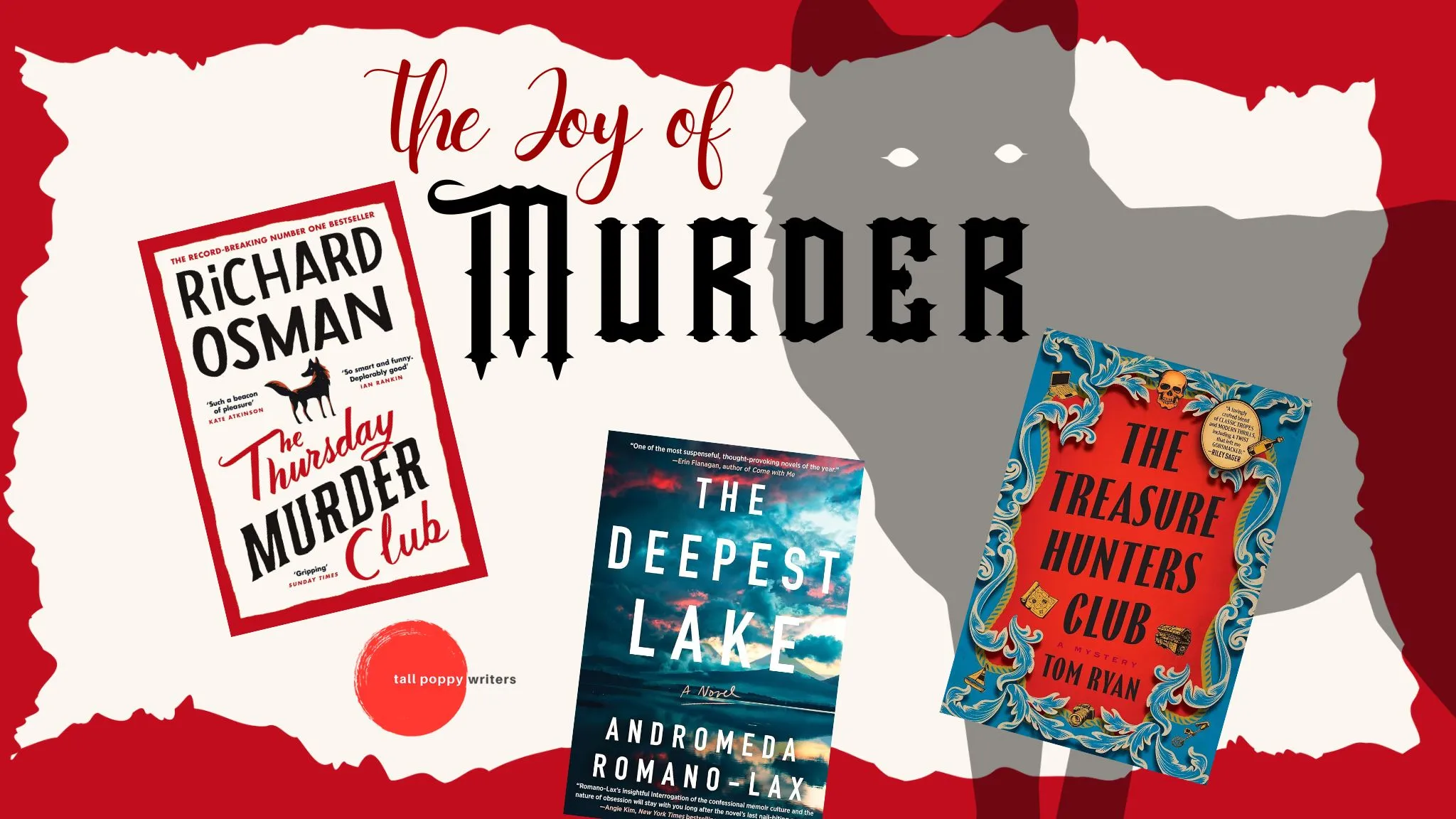I’ve been thinking about murder. As someone who grew up reading towering stacks of Agatha Christie and watching Murder, She Wrote with my grandmother every day, I thought of dead bodies as a pretty fun time. I saw murder mysteries as puzzles, like crosswords with characters and shocking reveals. But as I sat down this past year to write a murder mystery of my own — my seventh novel — I found myself questioning the joy of murder.
Why are we so drawn to it?
I can see why a psychopath might like to read about slit throats and poisonings, but why do those of us who have no interest in violence — who abhor it, even — like to read about people being killed, often in terrible ways? If you google, you’ll turn up articles about how we still have primal impulses to protect ourselves from predators, so on some level, as we tally up the clues, we’re looking to figure out ways to keep ourselves alive. If we read a story that shows us why someone else was a victim, we can keep from repeating their mistakes. If we spot a killer on the page, we can spot one in real life and keep ourselves safe.
That, at least, is what our lizard brain is telling us. Maybe. Maybe we just like high stakes and high drama, and death is the highest stake possible. Maybe we’re only drawn to violence, like all those people who packed the Roman Colosseum in the gladiator days.
I think it’s more than that. I think we all know very well that actual death is out there, and not in a cozy mystery sort of way. I think we like the idea of taking it in hand — of boiling grief and loss down to something solvable. We wish they were solvable. We wish death fit a pattern with a clear-cut set of options, and if there happens to be an unexpected twist, well, that’s only part of the pattern, too. We wish there was a bad guy, and he would be caught. We wish there was a detective, and she would catch him. In the real world, death is cancer and car crashes and heart attacks and Alzheimer’s and long, drawn-out declines, but we open the pages of a murder mystery, and we know death will be managed neatly and satisfactorily.
the idea of taking it in hand — of boiling grief and loss down to something solvable. We wish they were solvable. We wish death fit a pattern with a clear-cut set of options, and if there happens to be an unexpected twist, well, that’s only part of the pattern, too. We wish there was a bad guy, and he would be caught. We wish there was a detective, and she would catch him. In the real world, death is cancer and car crashes and heart attacks and Alzheimer’s and long, drawn-out declines, but we open the pages of a murder mystery, and we know death will be managed neatly and satisfactorily.
Yet, underneath those pages, our own mortality is always there. When an author taps into it directly, it can make the pages even more powerful. I think that’s one reason Richard Osman’s Thursday Murder Club series — set in a senior living facility where dementia and the end of life have a terror that the fictional murderers in the stories never do — has found so many devoted readers. I’m definitely one of them. (Side note: people also read murder mysteries for the same reason they read any other story: a great voice and characters who sit with you long after you close the  book. That’s also a big reason these books do so well.) In Osman’s world, you might care who pulled the trigger, but you care way more about how Elizabeth’s husband is forgetting people’s names too often.
book. That’s also a big reason these books do so well.) In Osman’s world, you might care who pulled the trigger, but you care way more about how Elizabeth’s husband is forgetting people’s names too often.
I’ve started to be very aware of how the best kinds of murder mysteries often reach out and tug those existential threads. Tom Ryan’s The Treasure Hunter’s Club is a swashbuckling roller coaster of a story with pirate’s treasure and old mansions and plenty of bodies — and a wackadoodle twist that made my mouth actually fall open — but its beating heart is a granddaughter’s love and grief for her dead grandfather. Every Moment Since by Marybeth Whalen centers on the decades-old mystery of a missing child whose body is finally found, and while you can’t help but try to guess the killer, the stronger pull is the beautifully written struggle of the boy’s family making their peace with their guilt and loss. In Andromeda Romano-Lax’s The Deepest Lake, a mother heads to Guatemala to investigate her daughter’s death, winding up in the middle of the most disturbing writer’s retreat you’ll ever encounter — hopefully. I’m reluctant to call it a murder mystery, but as the cast of suspicious characters grows, it’s a mother’s love for her child — and that ever-present terror all mothers feel contemplating what-if — that electrifies the story.
investigate her daughter’s death, winding up in the middle of the most disturbing writer’s retreat you’ll ever encounter — hopefully. I’m reluctant to call it a murder mystery, but as the cast of suspicious characters grows, it’s a mother’s love for her child — and that ever-present terror all mothers feel contemplating what-if — that electrifies the story.
It’s a jumping off place, murder, for all the biggest emotions: fear and anger and love and all the rest of them. We all know death is out there. When you pick up a good murder mystery, you know it’s coming. You look it in the face, you stare as long as you like, and whenever you want, you close the book. You set it aside. You get back to the life humming and spinning all around you. The End.




